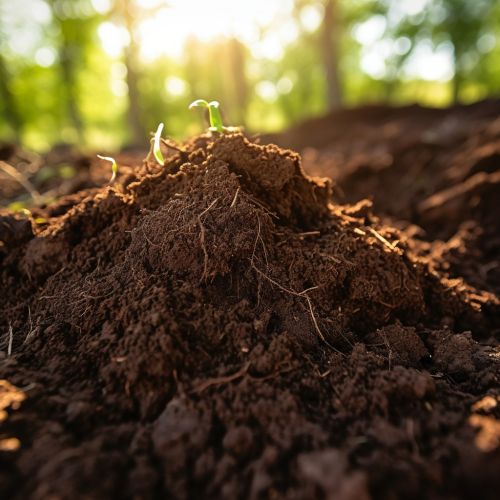The Role of Microbes in Sustainable Agriculture Practices
Introduction
In the realm of sustainable agriculture, the role of microbes is increasingly recognized as pivotal. Microbes, including bacteria, fungi, viruses, and other microscopic organisms, are essential components of agricultural ecosystems. They contribute to soil health, plant growth, and crop yield, while also playing a significant role in mitigating environmental impacts of farming practices.


Microbes and Soil Health
Soil health is a critical determinant of agricultural productivity. Microbes play a key role in maintaining and improving soil health through various processes. They participate in nutrient cycling, organic matter decomposition, and soil structure formation, among other functions.
Nutrient Cycling
Microbes are integral to the process of nutrient cycling, which involves the conversion of various nutrients into forms that plants can absorb. For instance, nitrogen-fixing bacteria, such as those in the genus Rhizobium, convert atmospheric nitrogen into ammonia, a form that plants can utilize. Similarly, phosphorus-solubilizing and potassium-solubilizing microbes help make these essential nutrients available to plants.
Organic Matter Decomposition
Microbes are the primary agents of organic matter decomposition in soil. Through this process, they break down complex organic materials, such as plant residues and animal manure, into simpler substances. This not only recycles nutrients but also contributes to the formation of humus, a stable form of organic matter that improves soil structure and water-holding capacity.
Soil Structure Formation
Microbes, particularly fungi and bacteria, contribute to the formation of soil aggregates, small clumps of soil particles held together by microbial exudates, roots, and fungal hyphae. This aggregation improves soil structure, enhancing its porosity and permeability, which in turn facilitates root penetration and water movement.
Microbes and Plant Growth
Beyond their contributions to soil health, microbes also directly influence plant growth. Some microbes form symbiotic relationships with plants, aiding in nutrient acquisition, while others produce plant growth-promoting substances.
Symbiotic Relationships
Many microbes establish symbiotic relationships with plants, particularly in the plant root zone, or rhizosphere. For example, mycorrhizal fungi form associations with plant roots, aiding in the uptake of nutrients, particularly phosphorus, from the soil. Similarly, nitrogen-fixing bacteria in legume root nodules convert atmospheric nitrogen into a form that the plant can use.
Plant Growth-Promoting Substances
Certain microbes, known as Plant Growth-Promoting Rhizobacteria (PGPR), produce substances that promote plant growth. These substances include hormones, such as auxins and gibberellins, which stimulate root development and plant growth. Some PGPR also produce siderophores, compounds that bind and solubilize iron, making it available to plants.
Microbes and Environmental Sustainability
In addition to their roles in soil health and plant growth, microbes also contribute to the environmental sustainability of agricultural practices. They participate in the degradation of pollutants, carbon sequestration, and biological control of pests and diseases.
Degradation of Pollutants
Microbes have the ability to degrade a wide range of pollutants, including pesticides, heavy metals, and other toxic substances, through processes such as bioremediation and phytoremediation. This helps to reduce the environmental impact of agricultural practices and improves soil and water quality.
Carbon Sequestration
Soil microbes play a significant role in carbon sequestration, the process of capturing and storing atmospheric carbon dioxide in the soil. This not only helps to improve soil fertility but also contributes to mitigating climate change by reducing greenhouse gas emissions.
Biological Control
Microbes can also serve as biological control agents, helping to manage pests and diseases in sustainable agriculture. Certain microbes produce substances that are toxic to pests or inhibit the growth of pathogenic fungi and bacteria, reducing the need for chemical pesticides and fungicides.
Conclusion
Microbes, with their diverse roles in soil health, plant growth, and environmental sustainability, are integral to sustainable agriculture practices. Harnessing their potential can help to enhance agricultural productivity while minimizing environmental impacts. However, further research is needed to fully understand the complex interactions between microbes, plants, and the environment, and to develop effective strategies for microbial management in sustainable agriculture.
